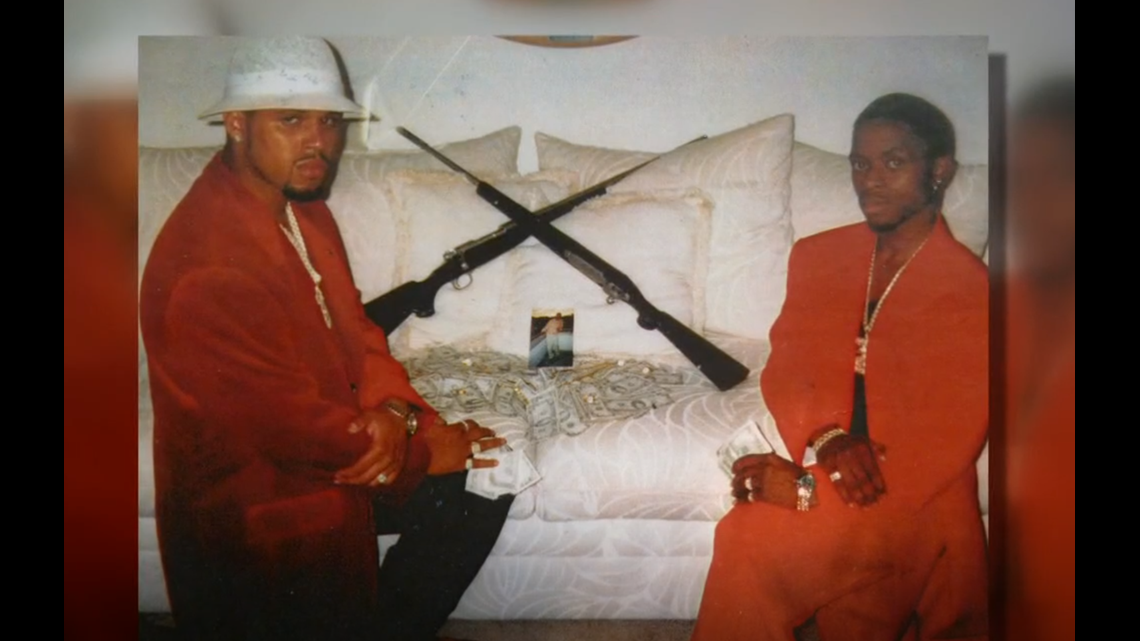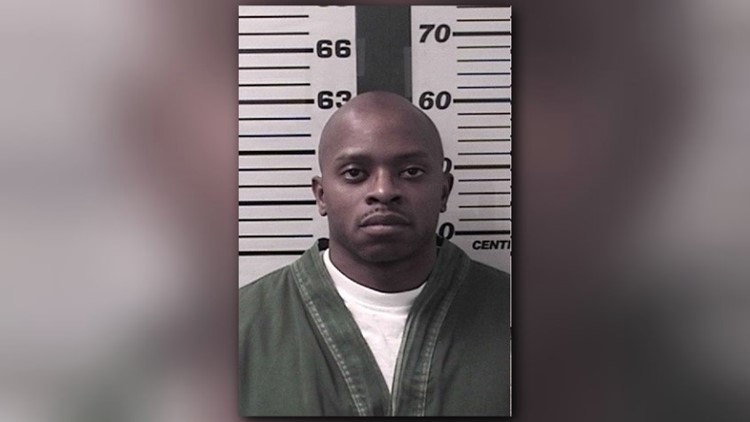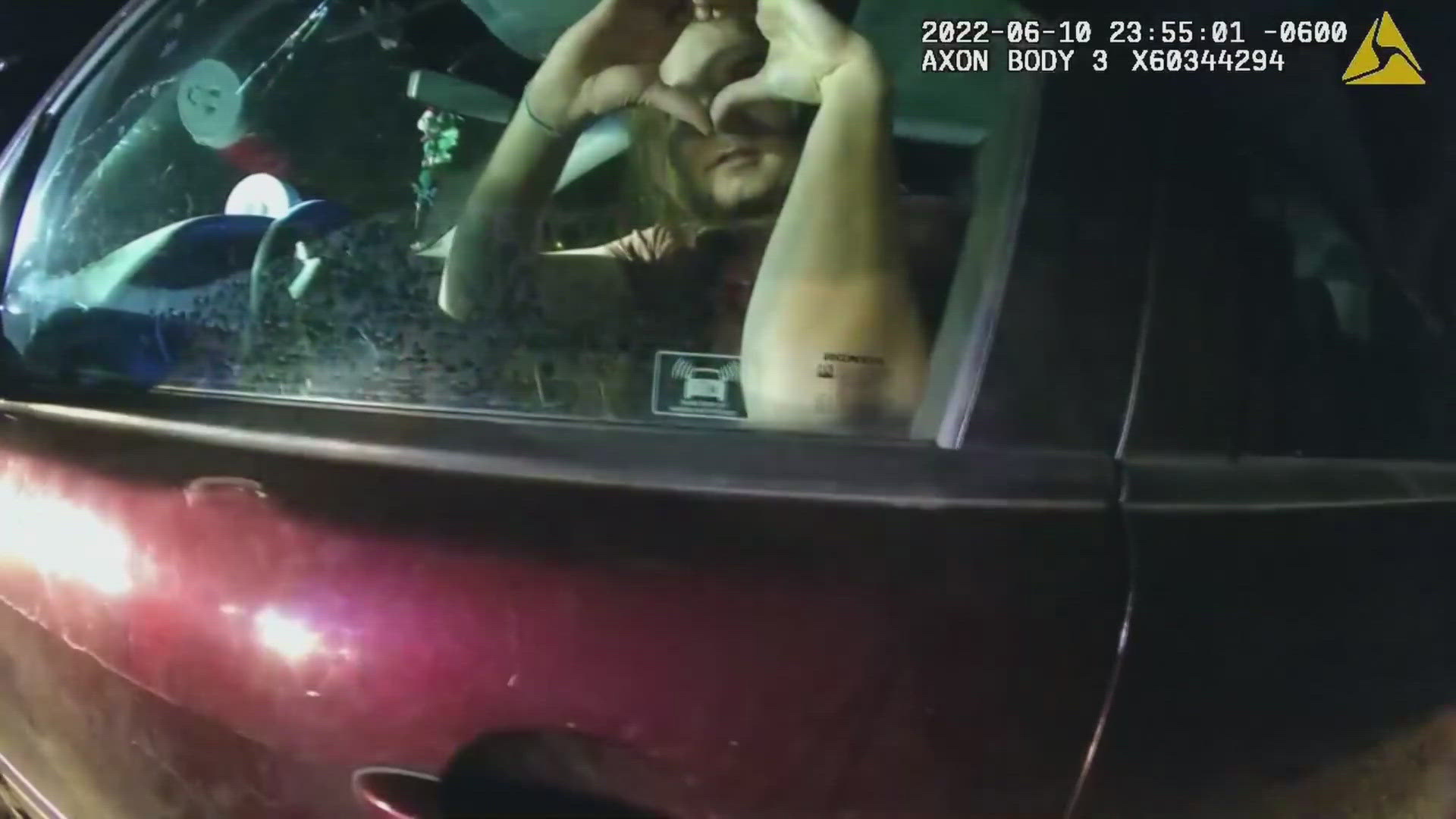CENTENNIAL — Michael Clifton, fighting at times to hold back his emotions, sat before a judge Tuesday and described himself as a very different man from the 19-year-old who pulled three video store robberies and a changed man from the convict who routinely got in trouble behind bars.
But the ultimate question remained unresolved – was he treated differently than his more well-known co-defendant, Rene Lima-Marin, a man who was accidentally released from prison early, who found religion and started a family, and who ultimately won a pardon from Gov. John Hickenlooper?
It is on that question that his hopes rest for a reduction in his 98-year prison sentence.
“A 98-year sentence has a way of taking the hope out of you and making your feel like your life is over,” Clifton said in a shaky voice.
He described how he and Lima-Marin – who he knew as Michael Marin – had been best friends before they pulled heists at three video stores in September 1998. Although they took hostages and used guns, no one was physically injured in any of the incidents.


Their trials ran parallel, and each was convicted of three counts of kidnapping, three counts of aggravated robbery and two counts of burglary. At their joint sentencing hearing, each was sentenced to a total of 98 years – 16 years for each of the kidnapping charges and 10 years for each of the other counts.
A judge ordered that the sentences be served consecutively – in other words, each would have to finish the first 16-year sentence before starting the second, and so on.
But a mistake occurred with the paperwork, and when Lima-Marin arrived in prison he was ordered to serve his sentences concurrently – meaning he faced a maximum of 16 years behind bars. He was released on parole in April 2008, married and had children and led a quiet life before the error was discovered nearly six years later and he was taken back into custody.
He appealed, arguing that he’d been denied his right of due process – and a judge agreed and ordered his release. After that, Hickenlooper pardoned him.
The sequence of events heartened Clifton, he testified.
“I was happy that he was able to change his life and accomplish all that he did,” Clifton said, growing emotional. “It gave me hope that I would have a chance – maybe at some kind of freedom someday.”
He filed a suit against Rick Raemisch, head of the Colorado Department of Corrections, arguing that his constitutional right to equal protection under the law had been violated. The central assertion: That he and Lima-Marin were “similarly situated” but that they were treated very differently by the state of Colorado.
After the paperwork mix-up, Lima-Marin was sent immediately to a medium-security prison; Clifton was sent to a maximum-security prison.
Lima-Marin lived uneventfully behind bars – getting in trouble only twice, for refusing to work. Clifton, on the other hand, violated prison rules 21 times.
He described the first serious trouble he got into behind bars in April 2002. Clifton was working as a teaching assistant, he said, when another inmate called him into a hallway and accused Clifton of staring him down. Then the other inmate attacked him, and Clifton, by his own account, fought back.
After spending 14 days in solitary confinement, he said, other African-American inmates encouraged him to retaliate against his attacker, who was Hispanic, with the expectation it would start a race riot in the prison.
Clifton said he refused – “I didn’t want to get in any more trouble,” he testified, on the verge of tears.
Because he didn’t fight back, he was isolated, verbally harassed and eventually attacked, knocked unconscious and sexually assaulted. Clifton said he didn’t report it to anyone.
“I would have been labeled as a snitch, and I would have had a bigger target on me than I already had,” he said.
As he testified, Clifton – dressed in orange jail scrubs, his wrists handcuffed to a chain wrapped around his belly – stopped repeatedly to compose himself.
After that incident, another inmate told him he had two choices: Fight back or forever be prey. He obtained a knife he carried for a while, but said in court he eventually lost it.
“I didn’t want to die in prison, but I didn’t want to experience that again,” he said of his time carrying a weapon.
He recounted an incident on Dec. 26, 2004, in which another inmate challenged him, saying it brought back memories of the sexual assault. Clifton said he started punching the other man, who he said was reaching behind his back – presumably for a weapon.
“I picked him up, and I slammed him,” Clifton said. “There was blood and there was a weapon. I grabbed the weapon and I ran.”
He was caught and found to have committed attempted murder. He denied the weapon was his but admitted he tried – unsuccessfully – to flush it down the toilet in his cell.
Still, Clifton testified that since Lima-Marin’s ultimate release that he had changed his ways – turning to religious faith and taking numerous classes, including one that helped him realize he was responsible for his behavior.
“I have the freedom to choose my actions,” he said.
Even so, James Quinn and Kathryn Starnella, lawyers for the Colorado Attorney General’s Office who are representing Raemisch, questioned whether he really could say he had changed – he was disciplined for a prison rules violation less than a year ago.
And they tried to demonstrate that he and Lima-Marin are not “similarly situated” – a key to his argument that he was denied equal protection – pointing to the contrasting prison disciplinary records of the two men.
Adam Frank, Clifton’s attorney, has argued that the root of Clifton’s troubles lay in the fact he was sent to a higher-security prison in the beginning, found himself surrounded by predators and a violent climate. Lima-Marin, on the other hand, spent his time behind bars is much less-violent surroundings.
Ultimately, Arapahoe County District Judge Frederick Martinez will have to sort out how all of that figures into the question that matters: Were the two men “similarly situated?”
Attorneys for Clifton and the state have seven weeks to file their final briefs. As a result, no ruling is expected late October, at the earliest.
Contact 9NEWS reporter Kevin Vaughan with tips about this or any story: kevin.vaughan@9news.com or 303-871-1862.



